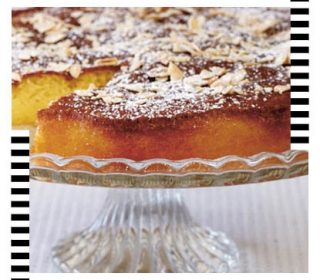To gossip or not to gossip?

There’s nothing like the thrill of a furtive gossip. But why is it such a guilty pleasure?
Gossip is like that fifth glass of Prosecco or binge-watching box sets until dawn. Sure, it’s great fun at the time, but the self-reproach will come. Although it might not be best for our higher, healthier selves, it’s very rewarding for our baser nature.
One of my favourite quotes – said rather piously by Eleanor Roosevelt – is: ‘Great minds discuss ideas; average minds discuss events; small minds discuss people.’ It inspires me to try to be a better person.
I like the idea that chatting is the activity for insights and philosophies to fly between human minds, but I always secretly think that Eleanor would be no fun at a Christmas party.
Not all gossip is bad, is it? Sometimes I gossip in benign ways, even celebratory ways. And catching up on what people are up to, or expressing admiration or compassion for someone – that’s all fine and safe. But when it gets judgmental or malicious, it feels illicit, and I know I should stop it.
Lessons from the youth
My kids, who are six and nine at the time of writing, don’t gossip. What would they have to gossip about? Six-year-olds don’t have affairs or addictions, or anything scandalous to get the schadenfreude (pleasure juices) going.
Friendships seem pretty straightforward to happy kids. They have fallings-out and then make up, but they don’t bitch. When I look back on my own memories of indulging in a bit of hostile chin-wagging, it all leads back to my teens. The adolescent arena seems to be where we discover that if we gossip, then a) it’s a bonding ritual, b) we get to feel superior, and c) the heat’s off me. Those rites of passage may be of use to our emotional development, but should probably be dumped when we leave the playground and head into the grown-up world.
But it’s not that easy, is it? Especially in this age of social media and celebrity gossip. I’ve had to take Twitter and Facebook off my phone, as I can’t self-regulate my addiction to gawping at what people are doing, and then commenting on it. The fact that one-in-three of us check our phone in the middle of the night can’t be a good thing, surely? It doesn’t feel like it’s expanding my worldview, it’s shrinking it.
A British trait?
So, do we Brits have a propensity to gossip? Michael Gove (remember him?) thinks so. After it all came out about what he said of Boris Johnson and his previously thwarted attempts to become PM, we got a rare chance to see how people at every level of the social hierarchy enjoy a gossip. And he didn’t seem very contrite about the criticism. In fact, he quipped: ‘Getting pissed and having a gossip is as British as crumpets and tea.’
It could be argued that the upside of his indiscretion was our lucky escape. But there’s a very real dark side to yanking someone’s reputation down the drain as a leisure activity. In our world of cyberbullying and gutter-press scoop-chasing, is it any wonder we’ve lost our moral compass?
Even though I’ve long ago left the playground and supposedly function in the adult world, I still succumb to gossiping. It starts innocently enough: you circle the target, chit-chat your way in. But you know when you’ve crossed the line because if you were overheard, you’d feel ashamed. I did it only the other day, with someone I like and admire, but don’t know very well, and we were bonding and laughing.
Initially, Eleanor Roosevelt would have approved because we were talking about ideas, I swear we were. Then we were talking about events, which was still innocent and enriching. And then we start talking about a mutual acquaintance, and there were just enough hints and looks to know there was a reciprocal judging opportunity, and neither of us had the strength of character to resist. And then we gossiped. I felt awful about it after. I felt like it sullied an otherwise lovely bonding with a likeminded new friend. We texted each other later to jovially admonish ourselves.
‘Sins’ of the tongue
What’s in my brain wiring to navigate right from wrong in the gossiping arena? If it’s harmless, why did I feel so guilty? All religious teachings warn against it. Proverbs, psalms and sermons all say pack it in. But is it a cultural habit that’s too hard to kick?
There’s conflicting advice from the experts. The world of science doesn’t fully back up the religious stance. All the spiritual teachers warn us not to do it. You’d not have caught Buddha or Christ whispering about what Gary got up to with Sarah in HR at the back of Wetherspoons. The holy are wholly against it. The Jews are warned in the Talmud that: ‘Evil gossip kills three: the one who says it, the one who listens, and the subject of the gossip.’
Stone-age brains
Many psychologists and anthropologists claim we are hardwired to gossip. We’re lumbered with our Stone-Age brains in a modern world. It’s not a uniquely British trait either, despite what Michael Gove says. The willingness to gossip is a behaviour observed in people of all cultures, in every age group and in both genders. And that very fact determines it might be a vital aspect of human nature.
Gossip is part of our evolutionary survival. Our prehistoric ancestors gossiped to let their tribe folk know what social norms you could get away with. On a basic level, gossip and the fear of being gossiped about is supposed to be a deterrent for nonconformity and misbehaviour. I’d hate to be on the receiving end of a caveman bitching session. Behavioural deviance was threatening to primitive folk. You could get banished from the cave for sounding off about your massive new arrowhead.
Maybe mass media might be too advanced for our evolutionary growth.
We still confuse celebrities with members of our actual direct community. But Charlotte De Backer, a psychologist at the University of Leicester, argues that we need these celebrities, saying young people look to this culture for life strategies ‘that would have been learned from one’s tribe in the old days’.
So what’s ok and what’s not? Morals say I shouldn’t gossip, but science says I can’t help myself. Like all the juicy bits of this existing lark, it’s up to us to find a balance. If you get a little endorphin high while having a bonding gossip, let yourself off the hook. But if Eleanor Roosevelt was listening, would you be able to look her in the eye and offer her another buttered crumpet?
Kerry Godliman is an actor, comedian, and writer. She’s well known for her roles in tv shows such as Derek, After Life, and Taskmaster. Kerry also has a podcast called Memory Lane with Kerry Godliman where she invites celebrities to talk about five important photos from their lives.











